Summer reading at its finest ignites the imagination, offering an escape to distant times and places. It also provides a deeper understanding of society, both past and present, which is vital to developing a more peaceful and prosperous future.
For this year’s Bradley Foundation Summer Book List, we asked for recommendations from leading thinkers who are bestselling authors themselves: Bradley Prize winners Mollie Hemingway (2021), Amity Shlaes (2021) and Lord Andrew Roberts (2016).
No requirements were given for a book to make the list, and as such, the variety is sure to satisfy the most intellectually curious of minds.
2023 Summer Book Recommendations by:
Amity Shlaes, 2021 Bradley Prize Winner
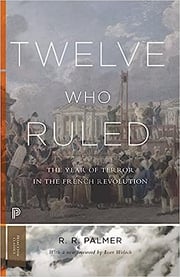 Twelve Who Ruled: The Year of Terror in the French Revolution
Twelve Who Ruled: The Year of Terror in the French Revolution
by R.R. Palmer
The Reign of Terror continues to fascinate scholars as one of the bloodiest periods in French history, when the Committee of Public Safety strove to defend the first Republic from its many enemies, creating a climate of fear and suspicion. This fascinating narrative follows the Committee’s deputies, recounting and assessing their tumultuous struggles in Paris and their repressive missions in the provinces.
Amity’s take: The French Revolution has many lessons for our current times, including how lawyers can morph into terrorists--overnight. But the thought of plunging into this vast topic daunts most of us. An easy way to start your study of the Revolution is this readable set of portraits of the members of the Committee of Public Safety, the institution that led the Reign of Terror. R.R. Palmer's scholarship also provides a model of what books once were, and can be again.
Read reviews and purchase here.
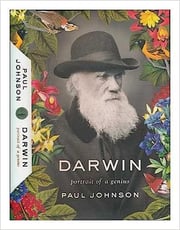 Darwin: Portrait of a Genius
Darwin: Portrait of a Genius
by Paul Johnson
Charles Darwin is arguably the most influential scientist of all time. His Origin of Species forever changed our concept of the world’s creation. From his birth into great fortune to his voyage aboard the HMS Beagle, to the publication of his masterpiece, Johnson delves into what made this Victorian gentleman into a visionary scientist—and into his tragic flaws.
Amity’s take: Paul Johnson is known for his tomes, such as Modern Times. But his monographs also warrant attention. In this one on Charles Darwin, Johnson pushes back against the conventional view of Darwin as a godless progressive. The reader also gets a good feel of the Victorian period, when the magnanimity and good sense of Victoria and Albert enabled great minds like Darwin to flower.
Read reviews and purchase here.
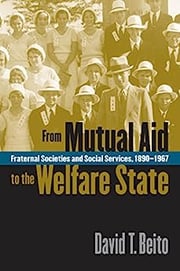 From Mutual Aid to the Welfare State: Fraternal Societies and Social Services, 1890-1967
From Mutual Aid to the Welfare State: Fraternal Societies and Social Services, 1890-1967
by David Beito
During the late 19th and early 20th centuries, more Americans belonged to fraternal societies than to any other kind of voluntary association, apart from churches. Fraternalism cut across race, class, and gender lines, giving Americans a way to provide themselves with social-welfare services that would otherwise have been inaccessible. Beito explores how changing cultural attitudes and the expanding welfare state eventually propelled their decline.
Amity’s take: The conventional notion of America's public safety net is that Franklin Roosevelt and leaders who followed, Lyndon Johnson and George W. Bush, made it. Before that, conventional wisdom says, "we had nothing." Not so, proves David Beito in this portrait of America pre-entitlement. Mutual aid societies, orphanages, national clubs, provided citizens with much of what they needed -- and did that with citizen participation on a voluntary basis. As Beito has noted, these little wonders were crowded out by the giant federal programs of the 20th century -- to the nation's detriment.
Read reviews and purchase here.
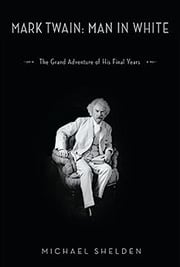 Mark Twain: Man in White: The Grand Adventure of his Final Years
Mark Twain: Man in White: The Grand Adventure of his Final Years
by Michael Shelden
Although Mark Twain has long been one of our most beloved literary figures, his final years have been largely misunderstood. Drawing on a number of unpublished sources, including Twain's own journals, letters, and a revealing four-hundred-page personal account kept under wraps for decades (and still yet to be published), Shelden brings the legendary author's twilight years vividly to life, offering surprising insights, including an intimate, tender look at his family life.
2023 Summer Book Recommendations by:
Andrew Roberts, 2016 Bradley Prize Winner
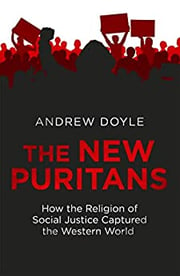 The New Puritans: How the Religion of Social Justice Captured the Western World
The New Puritans: How the Religion of Social Justice Captured the Western World
by Andrew Doyle
The New Puritans is a deeply necessary exploration of our current cultural climate and an urgent appeal to return to a truly liberal society. The puritans of the 17th century sought to refashion society in accordance with their own beliefs, but they were deep thinkers who were aware of their own fallibility. Today, in the grasp of the new puritans, we see a very different story. Doyle powerfully examines the underlying belief-systems of the new puritanism movement and how it has risen so rapidly to dominate all major political, cultural, and corporate institutions.
Andrew’s Take: Andrew Doyle skewers the entirely woke ideology in a funny, insightful and thought-provoking book that explores where woke comes from and where it wants to get to. He uses real-life examples of woke lunacy and idiocy (and malevolence) that will shock you but does it in a way that reiterates the fact that ridicule is the best disinfectant.
Read reviews and purchase here.
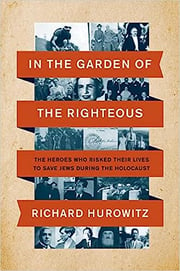 In the Garden of the Righteous: The Heroes Who Risked Their Lives to Save Jews During the Holocaust
In the Garden of the Righteous: The Heroes Who Risked Their Lives to Save Jews During the Holocaust
by Richard Hurowitz
The Second World War took the lives of over 50 million people; more than six million of them were systematically exterminated through crimes of such enormity that a new name to describe the horror was coined: the Holocaust. Yet amid such darkness, there were glimmers of light—courageous individuals who risked everything to save those hunted by the Nazis. In the Garden of the Righteous focuses on ten remarkable stories of those who repeatedly defied authorities and risked their lives, their livelihoods, and their families to save the helpless and the persecuted.
Andrew’s Take: Richard Horowitz’s well-researched, well-written and at times profoundly moving account of those (tragically all too few) Righteous Gentiles who defied the Nazis to save Jews from the Holocaust will stay with you long after you finish the last page.
Read reviews and purchase here.
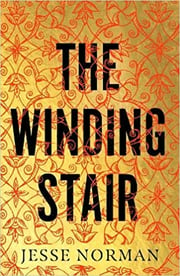 The Winding Stair
The Winding Stair
by Jesse Norman
Of all revenge, the greatest is this: that which cometh suddenly, without expectation. Queen Elizabeth I is dying, James I waiting to accede. But who will thrive, and who will fail, under the new king? Will it be the scholar Francis Bacon, whose brilliant mind is the envy of the court? Or his hated rival Edward Coke, already acclaimed as the greatest lawyer of his generation?
The Winding Stair tells the gripping story of these two founders of our modern world, and their bitter struggle for influence and power.
Andrew’s Take: If you liked Hilary Mantel’s ‘Wolf Hall’ novels about the Tudors, you’ll love Jesse Norman’s superb retelling (much of it in contemporary verbiage) of the early Stuarts, done through the prism of the rivalry between the two most prominent jurists of the day, Sir Francis Bacon and Sir Edward Coke. Full of high-minded principles and low-morality cunning, its depiction of politics is all the more powerful coming from a writer who is also a Member of Parliament.
Read reviews and purchase here.
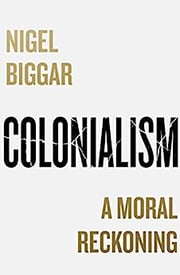 Colonialism: A Moral Reckoning
Colonialism: A Moral Reckoning
by Nigel Biggar
With Russia rattling its saber on the borders of Europe and China rising to challenge the post-1945 world order, the liberal West faces major threats. These threats are not only external. Especially in the Anglosphere, the ‘decolonization’ movement corrodes the West’s self-confidence by retelling the history of European and American colonial dominance as a litany of racism, exploitation, and massively murderous violence. Colonialism offers a moral inquest into the colonial past, forensically contesting damaging falsehoods and thereby helping to rejuvenate faith in the West’s future.
Andrew’s Take: Woke ideology tells us that all Colonialism was utterly morally wrong everywhere throughout world history (while at the same time it hypocritically tries to impose wokery on places such as present-day Africa and Asia). Nigel Biggar’s calm approach places Colonialism in its proper historical context, and comes up with some surprising but compelling conclusions, ones that got the book cancelled by Bloomsbury, but later heroically picked up by HarperCollins.
Read reviews and purchase here.
2023 Summer Book Recommendations by:
Mollie Hemingway, 2021 Bradley Prize Winner
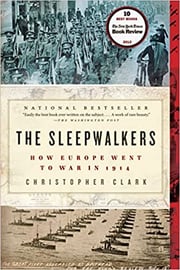 The Sleepwalkers: How Europe Went to War in 1914
The Sleepwalkers: How Europe Went to War in 1914
by Christopher Clark
The moments that it took Gavrilo Princip to step forward to the stalled car and shoot dead Franz Ferdinand and his wife were perhaps the most fateful of the modern era. An act of terrorism of staggering efficiency, it fulfilled its every aim: it would liberate Bosnia from Habsburg rule and it created a powerful new Serbia, but it also brought down four great empires, killed millions of men, and destroyed a civilization. Drawing on new scholarship, The Sleepwalkers offers a fresh look at World War I, focusing not on the battles and atrocities of the war itself, but on the complex events and relationships that led a group of well-meaning leaders into brutal conflict.
Mollie’s Take: With Europe becoming a tinderbox and most Americans only able to make reference to World War II, it's high time to revisit how the entire world stumbled into World War I.
Read reviews and purchase here.
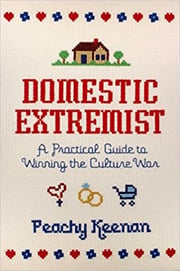 Domestic Extremist: A Practical Guide to Winning the Culture War
Domestic Extremist: A Practical Guide to Winning the Culture War
by Peachy Keenan
We are in a culture war, and Peachy Keenan is not taking prisoners. For decades, we stood around and watched as feminists and progressives steamrolled through our institutions— those formerly robust, now comically inept, pillars of civilization like our government, our schools, and, crucially, our families. With matchless insight and devastating humor, Keenan makes the case for domestic extremism—turning away from the diseased offerings of the elites, the media, Hollywood, your child’s school, and Big Tech, and embracing a more human way of life.
Mollie’s Take: Peachy Keenan is the pseudonym of an Ivy League educated Catholic mother of five from Los Angeles who has attracted quite a following on the internet for her bold pronouncements and edgy humor. Her first book doesn't disappoint -- it's perhaps the funniest book written on politics since the heyday of P.J. O'Rourke, in addition to being a richly deserved takedown of feminist pieties from a woman that doesn't pull any punches.
Read reviews and purchase here.
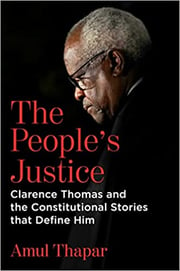 The People's Justice: Clarence Thomas and the Constitutional Stories that Define Him
The People's Justice: Clarence Thomas and the Constitutional Stories that Define Him
by Amul Thapar
No Supreme Court justice has come from humbler circumstances than Clarence Thomas, yet critics denounce him as the "cruelest justice," a heartless traitor to his race who cynically sacrifices justice to ideology. In The People’s Justice, Judge Amul Thapar demolishes that caricature. Exploring the human stories behind twelve illustrative cases on which Justice Thomas has ruled, Thapar demonstrates the coherence of Thomas’s judicial philosophy and the profound humanity on which it rests. It is precisely because of his fidelity to the Framers' original meaning that he can respond to the struggles of ordinary Americans.
Mollie’s Take: This is really two books in one -- it's an intellectual biography of Justice Thomas and skillful dissection of the legal reasoning that makes him tick, as well as an educational survey of some of the most important Supreme Court cases of the modern era. Thapar, a respected federal judge on the Sixth Circuit court of appeals, is one of the few legal minds alive with the expertise and perspective to give Thomas the consideration he deserves.
Read reviews and purchase here.
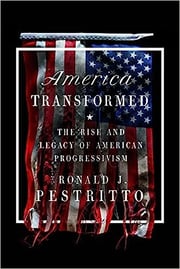 America Transformed: The Rise and Legacy of American Progressivism
America Transformed: The Rise and Legacy of American Progressivism
by R.J. Pestritto
The America of the modern administrative state is not the America of the original Constitution. This transformation comes not only from the ordinary course of historical change and development, but also from a radical, new philosophy of government that was imported into the American political tradition by the Progressives of the late 19th century. The new thinking about the principles of government — and open hostility to the American Constitution — led to a host of concrete changes in American political institutions, which this book explores.
Mollie’s Take: The American academy is so liberal that it's hard to find historians and political scientists willing to be critical of progressivism. Fortunately, Pestritto, a professor of Politics at Hillsdale College, has covered this terrain extensively in his career and has written a readable and essential book explaining exactly how progressives have spent the last century or more undoing America's constitutional order and governing America through the creation of an army of unelected and unaccountable federal bureaucrats.
